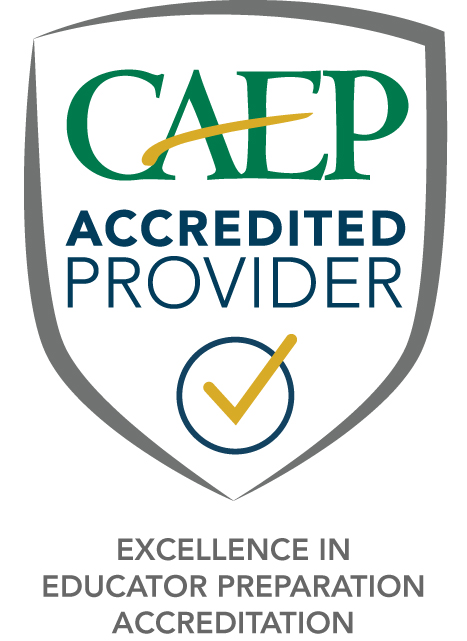College Earns Accreditation and Award
The University of Missouri College of Education & Human Development’s accreditation is award-winning and places it in elite company with a select few programs across the nation.

The College earned full accreditation from the Council for the Accreditation of Educator Preparation (CAEP) in the Spring semester of 2021 and will remain accredited through 2028 for the maximum amount of time granted – seven years. The accreditation recognizes all teacher certification areas as well as PK-12 Leadership, School Psychology, and School Counseling programs.
In addition, the College received the 2021 Frank Murray Leadership Recognition for Continuous Improvement. This recognition was only awarded to 26 institutions, and programs that “advance equity and excellence in educator preparation through purposeful use of self-study procedures and evidence-based reporting that assure quality and support continuous improvement to strengthen P-12 learning.”

“As a College, this award proves we are a national leader in the preparation of educators. We’re all extremely proud to earn this accreditation to be recognized as excellent among our peers,” said Interim Dean Erica Lembke. “This is a tremendous accomplishment, and it signals to students and families that the Mizzou College of Education & Human Development provides a premier education and top quality programs.”
CAEP accreditation is based on a rigorous and thorough peer review process that serves the dual functions of assuring quality and promoting continuous improvement. Throughout the accreditation cycle, providers gather and organize evidence to make a case that their educator preparation programs meet the standards of quality required to improve P-12 student learning. This process included 200 items of evidence and 120 college stakeholders.
Educator preparation providers seeking accreditation must pass peer review on five standards, which are based on two principles: 1) Solid evidence that the provider’s graduates are competent and caring educators, and 2) Solid evidence that the provider’s teacher-educator faculty have the capacity to create a culture of evidence and use it to maintain and enhance the quality of the professional programs they offer.

“It was extremely satisfying to see that our data reflected what I always knew: our innovative yearlong experiences in classrooms prepare our students to be highly sought after in districts throughout the state and beyond. It’s one of the reasons why we had 100 percent job placements last year,” said Laurie Kingsley, Director of Teacher Education in the Department of Learning, Teaching and Curriculum.

“The accreditation process demonstrates that we have outstanding educator preparation programs that are recognized across the nation by our peers,” said John Lannin, the Associate Dean of Student Success and Academic Affairs during the accreditation process. “We have innovative programs in teacher education, school counseling, school psychology, and PK-12 leadership that prepare our graduates to be local and national leaders in education.”

“This outcome would not have been possible without the persistent efforts of exceptional faculty and staff members, instructors, and all the district partners,” said Sankalp Shivaprakash, Director of Assessment. “These key stakeholders not only make student success a key aspect of their work, but they continuously engage in advancing the quality of coursework, curriculum, and student services based on data and research.”

“When families and prospective students are investigating universities and programs, accreditation is a factor in their decision-making process, reassuring them of our commitment to the highest standards,” said Lisa Goran, Director of Teacher Education in the Department of Special Education. “Plus, our students see us modeling the very things we want them to do as educators: be reflective, listen to students, collect and analyze data on performance, and make programmatic changes based on the needs of our students and community.”